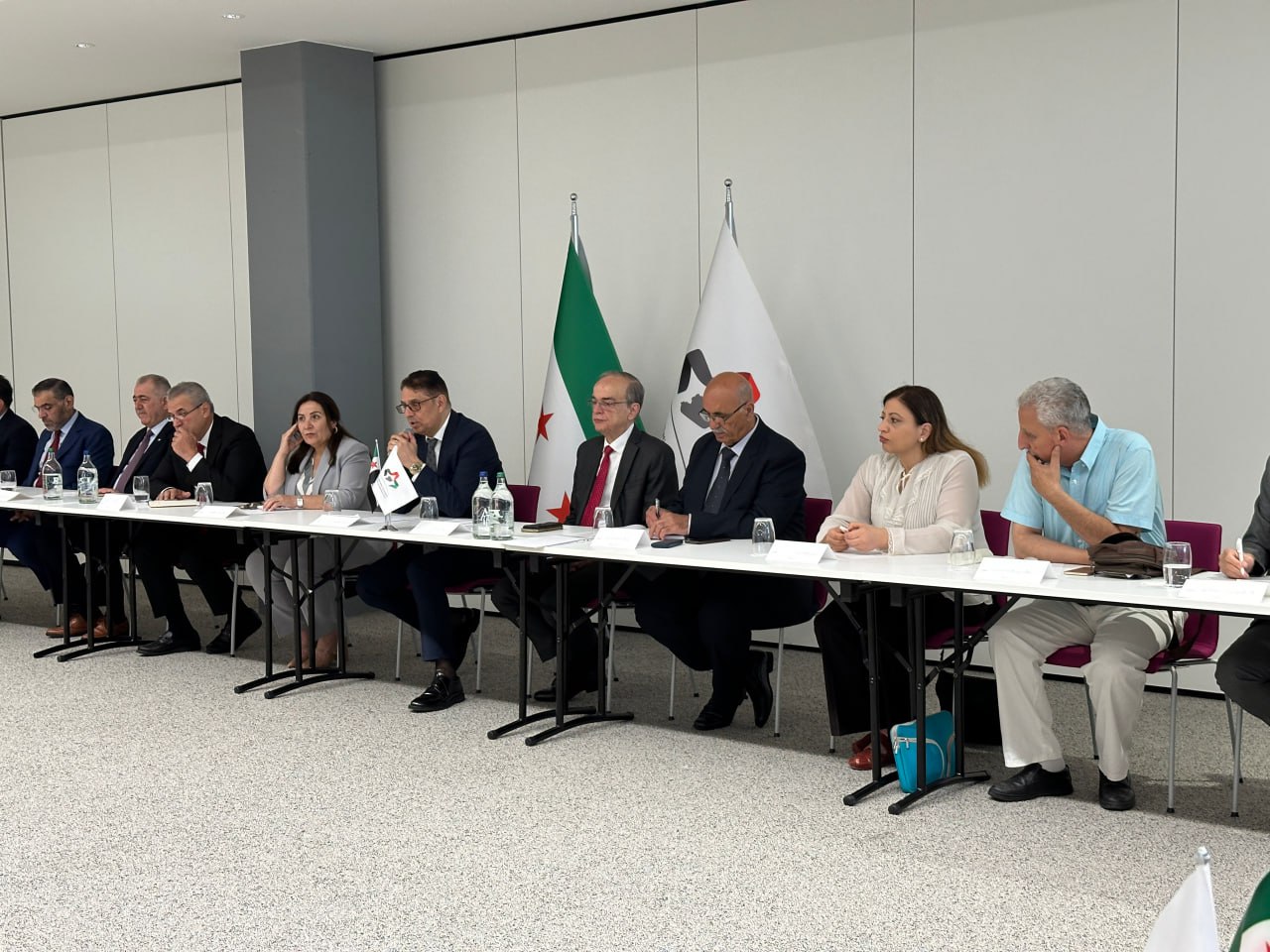The Syrian Negotiations Commission convened its regular meeting in Geneva on June 10th and 11th, 2024, with extensive national participation, having invited civil society organizations from both within and outside Syria. The Commission deliberated on a comprehensive array of topics concerning the Syrian crisis and explored avenues to revitalize the political process.
The initial session commenced with a meeting featuring the UN envoy to Syria, Geir Pedersen, wherein the latest developments in the political process and the manifold challenges confronting it were thoroughly discussed. President of the Syrian Negotiations Commission, Badr Jamous, initiated the proceedings with an introductory briefing. Throughout the meeting, participants engaged in discussions concerning recent political developments, and an open session ensued with foreign envoys and representatives from civil society organizations. Administrative matters were duly addressed, alongside deliberations on the functioning of the Syrian Negotiations Commission’s committees.
During a dialogue session with foreign representatives and civil society organization delegates, the Commission underscored the imperative of implementing UN Resolution 2254 for any viable resolution in Syria. It cautioned against any endeavors to resolve issues at the expense of the Syrian populace, emphasizing the detrimental repercussions such actions could entail.
The Commission advocated for a special session of the Security Council to address the impediments hindering the implementation of Resolution 2254, emphasizing its pivotal role as the legitimate framework for achieving a sustainable political solution in Syria.
Furthermore, the Commission cautioned against allowing the Assad regime to exploit the refugee crisis for reaping gains from the early recovering programs and other political gains, citing security concerns as the primary barrier to the safe return of Syrian refugees. It called for the protection of refugees’ rights, humanitarian needs, and an end to violations exacerbating their plight.
Efforts aimed at meeting the needs of the Syrian people were welcomed by the Commission, which stressed the importance of safeguarding against political exploitation by the Assad regime. It emphasized the necessity of independent risk assessments, guarantees, checks and balances, and equitable aid distribution for the success of early recovery initiatives.
Addressing the need for a secure and impartial environment, the Commission advocated for its establishment by a Transitional Governing Body, to be formed through UN-mediated negotiations. Additionally, it urged the international community to support UN efforts concerning detainees and forcibly disappeared persons, citing their plight as an urgent concern demanding immediate attention.
Highlighting the significance of education in shaping Syria’s future, the Commission called for heightened attention from friendly nations and the UN. It proposed the formation of a UN committee to oversee the state of education and expressed support for endeavors aimed at providing quality education to all Syrian students.
The Commission firmly rejected the so-called elections called for by the regime in areas under its control and by de facto authorities in the eastern Euphrates region. These elections, lacking legal basis and legitimacy, fail to represent all Syrians or adhere to fundamental democratic principles.
In closing, the Commission expressed solidarity with the Palestinian people, advocating for the realization of their legitimate rights, establishment of an independent state, and adherence to relevant UN resolutions. It called for an immediate and permanent cessation of aggression against Gaza, alongside urgent delivery of relief and humanitarian aid to Palestinians across all regions.
(Source: SOC’s Media Department)












